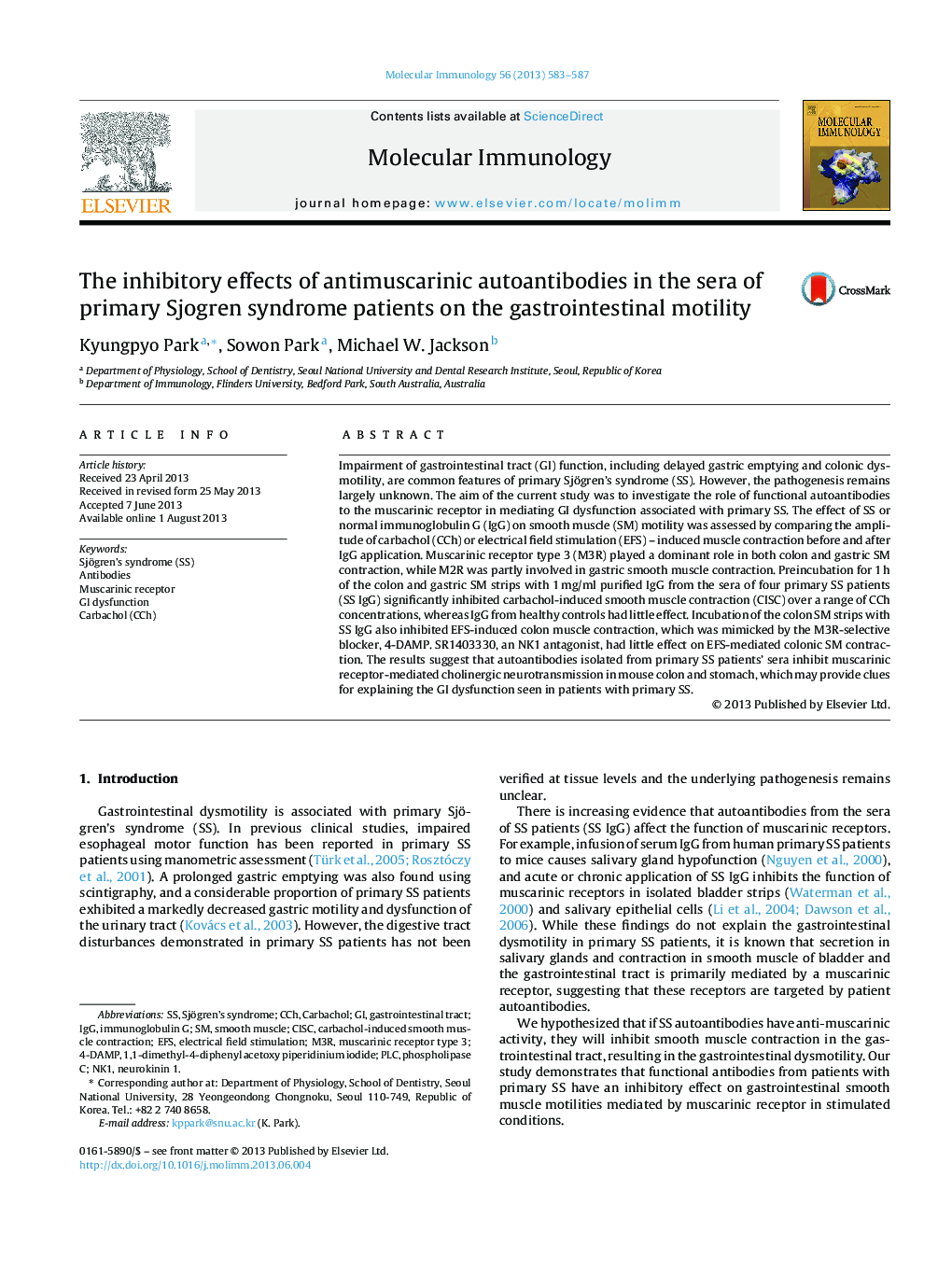| Article ID | Journal | Published Year | Pages | File Type |
|---|---|---|---|---|
| 5916960 | Molecular Immunology | 2013 | 5 Pages |
Abstract
Impairment of gastrointestinal tract (GI) function, including delayed gastric emptying and colonic dysmotility, are common features of primary Sjögren's syndrome (SS). However, the pathogenesis remains largely unknown. The aim of the current study was to investigate the role of functional autoantibodies to the muscarinic receptor in mediating GI dysfunction associated with primary SS. The effect of SS or normal immunoglobulin G (IgG) on smooth muscle (SM) motility was assessed by comparing the amplitude of carbachol (CCh) or electrical field stimulation (EFS) - induced muscle contraction before and after IgG application. Muscarinic receptor type 3 (M3R) played a dominant role in both colon and gastric SM contraction, while M2R was partly involved in gastric smooth muscle contraction. Preincubation for 1Â h of the colon and gastric SM strips with 1Â mg/ml purified IgG from the sera of four primary SS patients (SS IgG) significantly inhibited carbachol-induced smooth muscle contraction (CISC) over a range of CCh concentrations, whereas IgG from healthy controls had little effect. Incubation of the colon SM strips with SS IgG also inhibited EFS-induced colon muscle contraction, which was mimicked by the M3R-selective blocker, 4-DAMP. SR1403330, an NK1 antagonist, had little effect on EFS-mediated colonic SM contraction. The results suggest that autoantibodies isolated from primary SS patients' sera inhibit muscarinic receptor-mediated cholinergic neurotransmission in mouse colon and stomach, which may provide clues for explaining the GI dysfunction seen in patients with primary SS.
Keywords
Related Topics
Life Sciences
Biochemistry, Genetics and Molecular Biology
Molecular Biology
Authors
Kyungpyo Park, Sowon Park, Michael W. Jackson,
